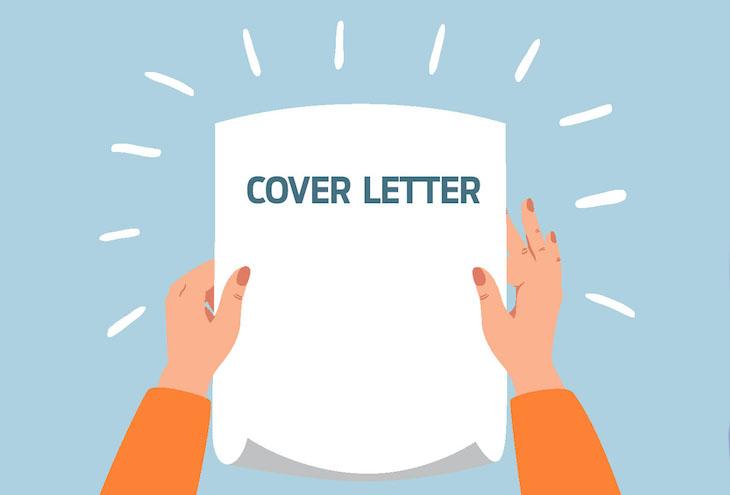In today’s job market, there are thousands of open positions. So if you’re looking for a new role, there’s plenty to choose from. Polish your resume and get ready to apply. In addition to an updated resume, many positions also require a cover letter. While cover letters can seem like a lot of extra work, they can be a useful tool to help sell yourself and your skills. Here are a few ways to write an effective cover letter.
Know Why You’re Writing a Cover Letter
Many applicants don’t see the value of a cover letter, or they don’t want to spend the extra time putting one together. However, a cover letter can be a good way to help hiring managers get to know you and the skills you would bring to a position. It is a way to provide details that don’t fit on a resume, and it can help highlight your passion for a role. In short, a cover letter can tell hiring managers what a resume can’t, so make good use of this opportunity to tell your story.
Clearly Communicate Your Skills and Experience
While employers appreciate passion and enjoy seeing that you are excited about their opportunity, they also need to understand why you are the right fit for the role. Make sure to clearly communicate why and how you have the skills and experience necessary for the job. Your resume may show you have worked in finance for eight years, but your cover letter can provide specifics about what you did in your current position. Hiring managers want to hear that you have been involved in budget projections and forecasting for the past seven years, and in the process you were able to save the organization money. Providing specific examples helps employers understand your skills, and how those skills will be helpful to them.
Use the Job Description to Your Advantage
I have worked in human resources for almost 15 years and have been recruiting for 10. I have read A LOT of cover letters. Hiring managers are moving quickly, so you only have a few seconds to grab their attention. The best cover letters I have read have clearly explained how the work that applicants did in their previous role will translate into success in the position they are applying for. Use the job description to your advantage. Pull key phrases and terms from the description, and include them in your cover letter. Some employers look for certain words or phrases, and if there are specific tasks in the job description that you can say you have done, it will make it easier for the hiring manager to see you as the right candidate.
Keep It (Fairly) Short
The general rule of thumb is to keep cover letters to a page or less. This should be more than enough space to help employers see you as a qualified candidate. At the same time, if an employer asks for a cover letter, make sure you include one — not a blank sheet of paper or two copies of your resume. By not submitting a cover letter you lose a valuable opportunity to sell yourself. You also make it look like you don’t care enough about your application to follow directions. That’s probably not the best first impression.
Proofread, Proofread, Proofread
I can’t tell you the number of cover letters I have received addressed to someone at another organization or are targeted to a position we did not have. Proofread your cover letter, then proofread it again. You can’t be too careful. The cover letter may be the first thing a hiring manager sees — make sure it has no unforced errors.
Cover letters can be an effective way to help employers better understand your skills and experience —and why you are a good fit for the position. An effective cover letter explains why you are interested in a position, lists what skills you will bring to the role, and highlights relevant experience. Make sure your letter is clear, concise, and error free. By following some of these tips, I hope your application will rise to the top of the pile.
 On Topic
On Topic
Brittany Anderson, Fond du Lac Anishinaabe, is the Research and Career Support Senior Program Officer at AISES. She has been involved in AISES since 2009 when she wanted to attend the National Conference in Albuquerque (read: go on a free, school-sponsored trip), and has found the AISES family to be an integral part of her life ever since. She is grateful to be able to share her experience in career counseling, academic advising, and teaching with the next generation of Native scholars.
What are three key ingredients to an effective cover letter?
A cover letter is really the bridge between the job description and your resume. It’s an opportunity for you to reaffirm why you are a great fit for the job. Cover letters allow you to expand on your interest in a job opening and provide a more personal touch to complement your resume.
Here are three key ingredients to creating a strong cover letter.
Do your research. Be sure to tailor your cover letter to each role you apply for. You can find out more about the culture of the organization by looking through their LinkedIn and Twitter accounts. Approach the job description as though it’s a problem the company is trying to solve — if it weren’t, the job wouldn’t be open, right?
Start strong. Most cover letters begin pretty generically. “I am applying for X job that I saw in Y place.” is a common leading statement, but how many of those does a hiring manager read each day? You can make your cover letter stick out by highlighting who you are, some experience you have, and what you would bring to the team to help solve their problem.
“I am an electrical engineer with five years of experience looking for an opportunity to apply my skills in a fresh setting and would be happy to bring my enthusiasm and experience to your well-established Integrated Product team,” reads so much better than, “I am applying for the electrical engineer position that I saw on LinkedIn.”
Remember to be direct and dynamic with your opening statement; you want to convey why you want the job and what you bring to the table.
Ask for a second opinion. When you ask a friend, coworker, or mentor to review your cover letter, it’s better to ask for specific feedback rather than to just ask for their thoughts. Your reviewer should be able to identify the main objective of your cover letter. What story do they think you are telling? Can they summarize the main points? Also ask them what’s wrong with the letter. A second pair of eyes can help catch grammatical errors, sense a tone of over-modesty or underselling, and help ensure that you put your best foot forward. Keep in mind, feedback is love.














